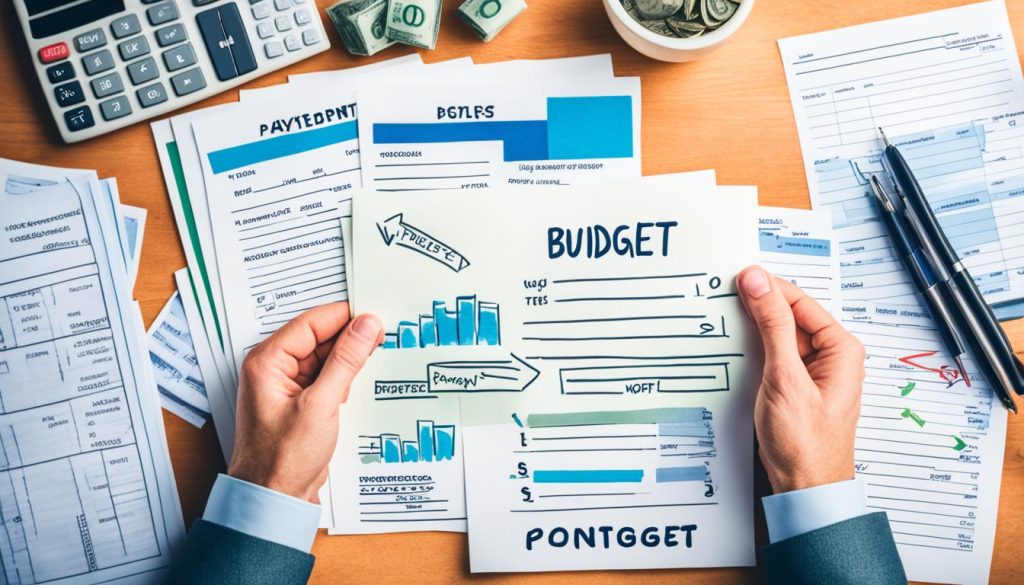Are you dreaming of a mortgage-free life? Paying off your mortgage early can be a game-changer, offering financial freedom and peace of mind. In this comprehensive guide, we’ll explore practical strategies and expert tips to help you achieve this goal.
Paying off your mortgage ahead of schedule is not only a financial achievement but also a mindset shift towards a more secure future. From making extra payments to refinancing options, we’ll cover everything you need to know to accelerate your mortgage payoff timeline.
Join us on this journey towards financial empowerment as we delve into the strategies and steps that can help you pay off your mortgage early, allowing you to enjoy a debt-free life sooner than you ever imagined.
How to Pay Off Your Mortgage Early?
Refinance Your Mortgage to Accelerate Payoff
Refinancing your mortgage to a shorter term can be a strategic decision to pay off your mortgage faster. By refinancing, you have the opportunity to lower your interest rate and reduce the overall loan term. This can result in significant savings on interest payments and allow you to build equity in your home at a faster pace.
However, it’s important to carefully consider the pros and cons of refinancing before making a decision. Some of the benefits of refinancing to pay off your mortgage faster include:
- Potential to secure a lower interest rate, which can save you thousands of pounds over the life of the loan.
- Ability to shorten the loan term, allowing you to become mortgage-free sooner.
- Opportunity to switch from an adjustable-rate mortgage to a fixed-rate mortgage for more stability and predictable payments.
On the other hand, there are potential drawbacks to refinancing, such as:
- Closing costs associated with refinancing, which can range from 2% to 5% of the loan amount. These costs need to be factored into your decision-making process.
- Resetting the loan term, which means you may be extending your mortgage repayment period if you’ve already made progress towards paying off your current mortgage.
- The impact on your credit score, as refinancing involves a credit check and can temporarily affect your credit.
To determine if refinancing is the right decision for you, it’s recommended to use a mortgage payoff calculator. This tool allows you to input your current loan details, including the remaining balance, interest rate, and term, and compare it to potential refinance options. The calculator will provide you with an estimate of how much you could save in interest payments and the time it will take to pay off your mortgage.
Remember, refinancing is a financial decision that should be based on your unique circumstances and goals. Consulting with a mortgage professional can provide you with personalized advice and guidance to help you make an informed choice.
Make Extra Mortgage Payments
Making extra mortgage payments is an effective strategy to pay off your mortgage early. By consistently making additional payments towards your principal, you can reduce the amount of interest you pay over the life of the loan and shorten the loan term.
There are two primary ways to make extra mortgage payments:
- Paying Bi-Weekly: Instead of making monthly mortgage payments, you can switch to a bi-weekly payment schedule. By doing so, you effectively make an extra month’s worth of payments each year. This can significantly reduce the overall length of your mortgage term and save you thousands of pounds in interest payments.
- Making Lump Sum Payments: Whenever you have extra funds available, whether it’s a tax refund, a bonus, or an inheritance, consider making lump sum payments towards your mortgage principal. By paying off a large chunk of the principal amount, you can reduce the interest that accrues over the remaining term of the loan. This accelerates your progress towards paying off your mortgage early.
Both of these methods require discipline and consistent effort to maximize their impact. It’s important to create a budget and allocate resources towards making these extra payments. Prioritize your mortgage payoff goal and set aside funds specifically for this purpose.
Making extra mortgage payments is a proactive approach that empowers you to take control of your financial future. It not only reduces the burden of debt but also provides you with the peace of mind of being mortgage-free sooner.

| Benefits of Making Extra Mortgage Payments | Considerations |
|---|---|
|
|
Use Windfalls to Pay Down the Principal
When it comes to paying off your mortgage early, utilizing windfalls can be a game-changer. Windfalls are unexpected funds that come your way, such as tax returns, bonuses, or credit card rewards. By applying these windfalls towards your mortgage principal, you can significantly accelerate your mortgage payoff.
Why should you use windfalls to pay down the principal? When you make extra payments towards your mortgage, the additional funds directly reduce the outstanding balance. By reducing the principal, you not only save on the interest charged over the life of the loan but also shorten the overall loan term.

By applying windfalls towards the mortgage principal, you can make a considerable dent in your outstanding balance without changing your regular monthly payment amount. This approach allows you to build equity faster and potentially eliminate your mortgage years ahead of schedule.
However, it’s essential to consider your overall financial situation before applying windfalls exclusively towards your mortgage. If you have high-interest debt, such as credit card debt, it might be more beneficial to pay off that debt first before focusing on your mortgage.
By prioritizing high-interest debt repayment, you can optimize your financial health and save on the interest charged on those balances. Once your high-interest debt is under control, you can then redirect your windfalls towards your mortgage principal with confidence.
Create a Budget and Prioritize Mortgage Payoff
Creating a budget is essential for paying off your mortgage early. By carefully managing your expenses and finding ways to save money, you can allocate more funds towards your mortgage payments. Here are some financial planning tips for early mortgage payoff:
- Cut unnecessary expenses: Analyze your monthly expenses and identify areas where you can make cuts. Consider reducing discretionary spending, such as eating out or entertainment, and focus on essential items.
- Find ways to increase your income: Explore opportunities to boost your income, such as taking on a side gig or freelancing. Allocating the extra income towards your mortgage payments can accelerate your payoff.
- Reduce debt: Prioritize paying off high-interest debt, such as credit card balances or personal loans, before focusing on your mortgage. By reducing your overall debt burden, you’ll have more resources available to allocate towards your mortgage.
When creating your budget, it’s important to prioritize mortgage payoff. Allocate a specific portion of your income towards your mortgage payments and consider making extra payments whenever possible. By committing to your budget and consistently prioritizing mortgage payoff, you’ll be on your way to early mortgage freedom.
To illustrate how budgeting can lead to early mortgage payoff, consider the following example:
| Scenario | No Budgeting | With Budgeting |
|---|---|---|
| Total Mortgage Principal | £200,000 | £200,000 |
| Term | 30 years | 20 years |
| Interest Rate | 3.5% | 3.5% |
| Monthly Payment | £898.09 | £1,225.46 |
| Total Interest Paid | £123,312.17 | £72,107.29 |
In the above example, by creating a budget and allocating additional funds towards mortgage payments, the term of the mortgage is reduced from 30 years to 20 years. This results in a significant reduction in interest paid over the life of the loan, saving £51,204.88.

Consider Round-Up and Dollar-a-Month Strategies
When it comes to paying off your mortgage early, even small changes can make a big difference. Two strategies that can help you achieve that goal are rounding up your mortgage payments and using the dollar-a-month strategy.
By rounding up your mortgage payments, you can gradually reduce your loan term. For example, if your monthly mortgage payment is £1,237, you can round it up to £1,300 by paying an extra £63 each month. Over time, these extra payments can significantly shorten the duration of your mortgage.
The dollar-a-month strategy is another effective way to accelerate your mortgage payoff. Simply add an extra pound to your monthly payment. While it may seem like a small amount, the additional pound goes directly towards reducing your principal balance, which can help you save on interest and pay off your mortgage earlier.
Both of these strategies are budget-friendly and can be easily incorporated into your financial plan. By making these small adjustments, you can take proactive steps towards becoming mortgage-free sooner.
To illustrate the impact of these strategies, let’s look at an example:
| Original Mortgage Term | Reduced Mortgage Term with Round-Up Strategy | Reduced Mortgage Term with Dollar-a-Month Strategy | |
|---|---|---|---|
| Mortgage Amount | £250,000 | £250,000 | £250,000 |
| Interest Rate | 3.5% | 3.5% | 3.5% |
| Original Mortgage Term | 30 years | 30 years | 30 years |
| Monthly Payment | £1,123 | £1,200 (rounded up) | £1,124 (dollar-a-month) |
| Total Interest Paid | £134,919 | £119,991 | £121,327 |
| Total Mortgage Term | 30 years | 26 years, 8 months | 26 years, 8 months |

As you can see from the table, both the round-up and dollar-a-month strategies have a significant impact on reducing the mortgage term and saving on interest. With the round-up strategy, you can shorten the mortgage term by 3 years and 4 months, while the dollar-a-month strategy reduces the mortgage term by 3 years and 4 months as well. Additionally, both strategies save you a substantial amount of interest over the life of the loan.
By implementing these strategies, you can make consistent progress towards paying off your mortgage early and achieve financial freedom sooner than expected.
Conclusion
Paying off your mortgage early is a wise financial decision that can provide stability and save you money in the long run. By implementing various mortgage payoff strategies, such as making extra payments, refinancing your mortgage, and using windfalls to reduce the principal, you can accelerate your journey towards mortgage freedom.
Creating a budget and prioritizing mortgage payoff will help you stay on track and make consistent progress. It’s important to consider round-up and dollar-a-month strategies, which are simple yet effective ways to gradually reduce your loan term.
With determination and careful planning, you can achieve the goal of paying off your mortgage early and enjoy the benefits of being mortgage-free. Start implementing these strategies today and take control of your financial future.

